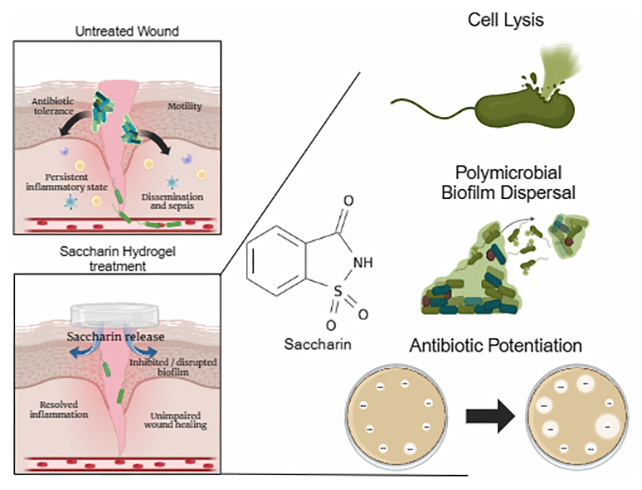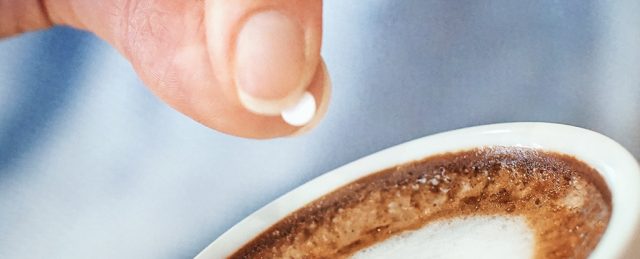While the health effects of artificial sweeteners are still up for debate, a new study suggests they might also be a surprising weapon in the fight against antibiotic resistance.
Led by a team from Brunel University in the UK, the researchers behind the study ran controlled lab tests to see how saccharin, a common artificial sweetener, interacted with bacteria. We know the chemical can influence gut bacteria, including those critical to our health, and the researchers wanted to take a closer look.
The results, from a bacteria-bashing perspective, were impressive: saccharin caused serious disruption to the structures of several bacteria strains, inhibiting how easily they grew and multiplied.

“We’ve identified a novel antimicrobial – saccharin,” says Ronan McCarthy, microbiologist from Brunel University. “Saccharin breaks the walls of bacterial pathogens, causing them to distort and eventually burst, killing the bacteria.”
“Crucially, this damage lets antibiotics slip inside, overwhelming their resistance systems.”
The team put saccharin up against some particularly nasty and drug-resistant bacteria, including Staphylococcus aureus and Escherichia coli. While the compound’s effectiveness varied between bacteria types, these early results are promising, and suggest saccharin could be effective against multiple bacteria strains with some tweaking.
In further experiments into saccharin’s bug-beating qualities, the researchers also developed a surgical dressing from the artificial sweetener. In lab tests on pig skin, it proved to be more effective than standard wound dressing materials like silver at reducing bacteria levels. It turns out that saccharin is something of a superhero in tackling bugs.
“This is very exciting,” says McCarthy. “Normally it takes billions of dollars and decades to develop a new antibiotic. But here we have a compound that’s already widely used, and it not only kills drug-resistant bacteria but also makes existing antibiotics more effective.”
“We urgently need new drugs to treat resistant infections – and saccharin could represent a new therapeutic approach with exciting promise.”
The stats on antibiotic resistance are pretty sobering. Bacteria that have evolved to be immune to the best drugs we have are on the rise, and are accounting for more and more deaths each year – with the annual figures now into the millions.
While we are making some progress in fighting the threat of these superbugs – including finding new vulnerabilities that could be used to take down drug-resistant bacteria – the worry is that they’re the ones winning the race.
Although it’s early days, saccharin could be a huge help in catching up, so we need to see how it works in clinical treatments before progress can be made. It’s also important to bear in mind the full range of effects that artificial sweeteners can have on the body, which may not all be positive.
“Antibiotic resistance is one of the major threats to modern medicine,” says McCarthy.
“Procedures such as tooth extractions and cancer treatment often rely on antibiotics to prevent or treat infection. But doctors are increasingly facing cases where the drugs no longer work.”
The research has been published in EMBO Molecular Medicine.










